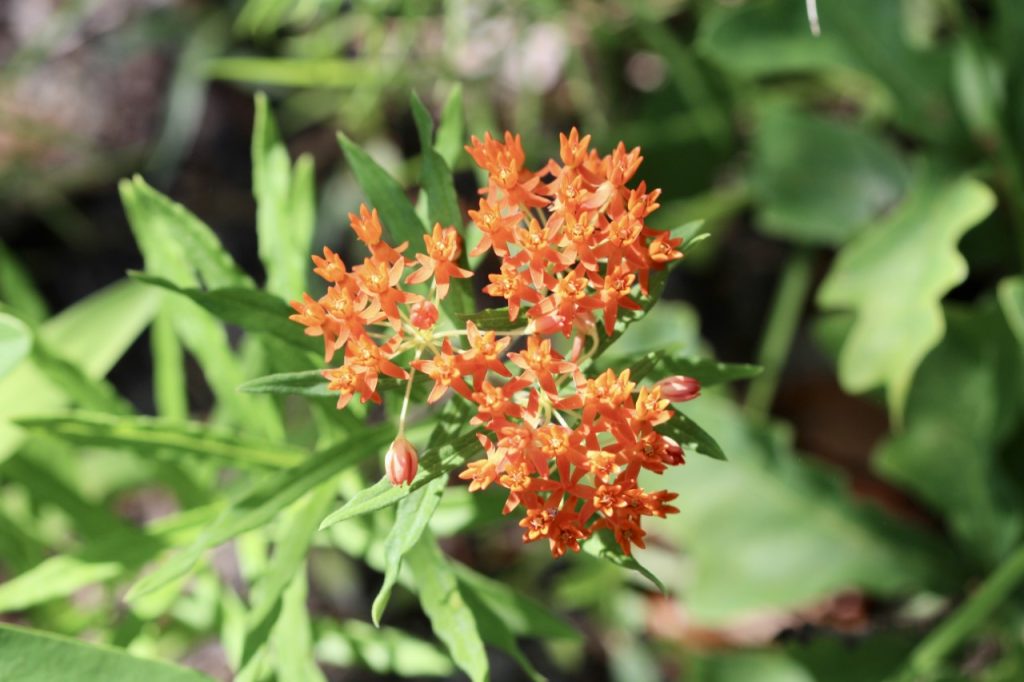Plant Ecology
The Plant Ecology lab focuses on understanding and preserving the tremendous amount of biodiversity present in the ground cover of the longleaf pine ecosystem.
The Coastal Plain of the southeastern United States has been recognized as a biodiversity hotspot. Biodiversity hotspots are defined as areas with globally unique plant communities (i.e., they have at least 1,500 species that are found nowhere else on Earth) that are threatened by habitat loss. The Plant Ecology lab has established a number of long-term research projects to better understand these diverse plant community assemblages and their response to disturbances such as fire (or lack thereof), logging activity, and climate change.
The information obtained from our long-term research projects helps us to set goals for ground cover restoration projects. Over the years, the Plant Ecology has partnered with seed producers to help get Coastal Plain sources of native species into the commercial seed market. We have also helped produce guidelines to delineate seed transfer zones – the distance seeds can be moved from a source population and still be ecologically appropriate at a restoration site.
In addition to understanding and restoring native ground cover, the Plant Ecology lab also helps to preserve some of the rarest species of the Coastal Plain flora. Ichauway is home to at least 35 plant species that are recognized as vulnerable, imperiled, or critically imperiled in the state of Georgia, including two that are listed as federally endangered. We work to map and monitor these populations and protect them through the responsible collection of seeds that are stored in a seed bank. The seed bank provides long-term insurance against population declines; in the event of such a decline, seed can be taken out of the seed bank and propagated for eventual restoration or recovery projects.
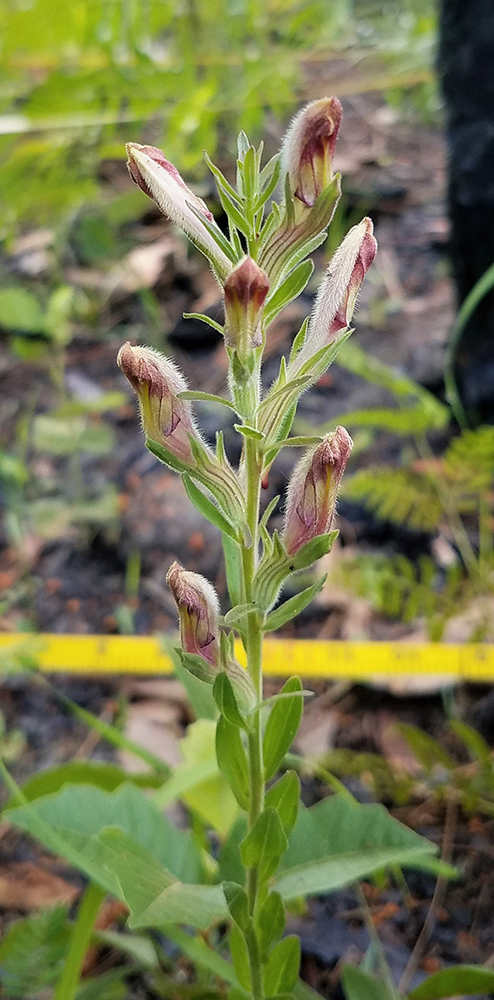
New Field Guide Links Local Geologic History to Water Resources
Produced in collaboration with Louisiana State University, “Field Guide to the Hydrogeology of Ichauway” uses easily observed land features as examples where geology and hydrology
A Landscape-Scale Approach to Wetland Mitigation
The lab is excited to partner with Frances O’Donnell and Matt Waters at Auburn University and the Aquatic Biology lab on a new USDA AFRI grant to study the role of
2020 ESA Annual Meeting
Tune-in to our presentations at the virtual Ecological Society Annual meeting: What has the greatest effect on sap-flow: a prescribed fire, a hurricane, or a solar
News
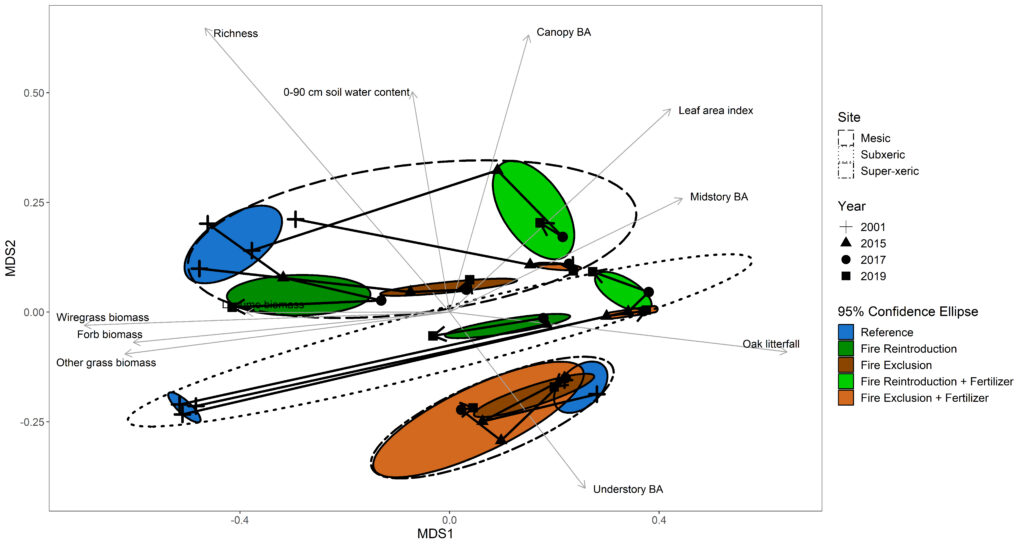
New paper on fire reintroduction and fertilizer legacy effects on plant communities
The Plant Ecology, Ecohydrology, and Ecological Silviculture Labs collaborated on a recent publication utilizing the Jones Center’s Long-term Productivity project. We found that: •Recovery in species composition was more evident at wetter sites compared to drier sites, likely because of seed establishment limitations at the drier sites. •A legacy of fertilizer addition dampened species richness and community recovery trajectories. •Recovery in species richness was most evident at larger (≥10 m2) spatial scales.
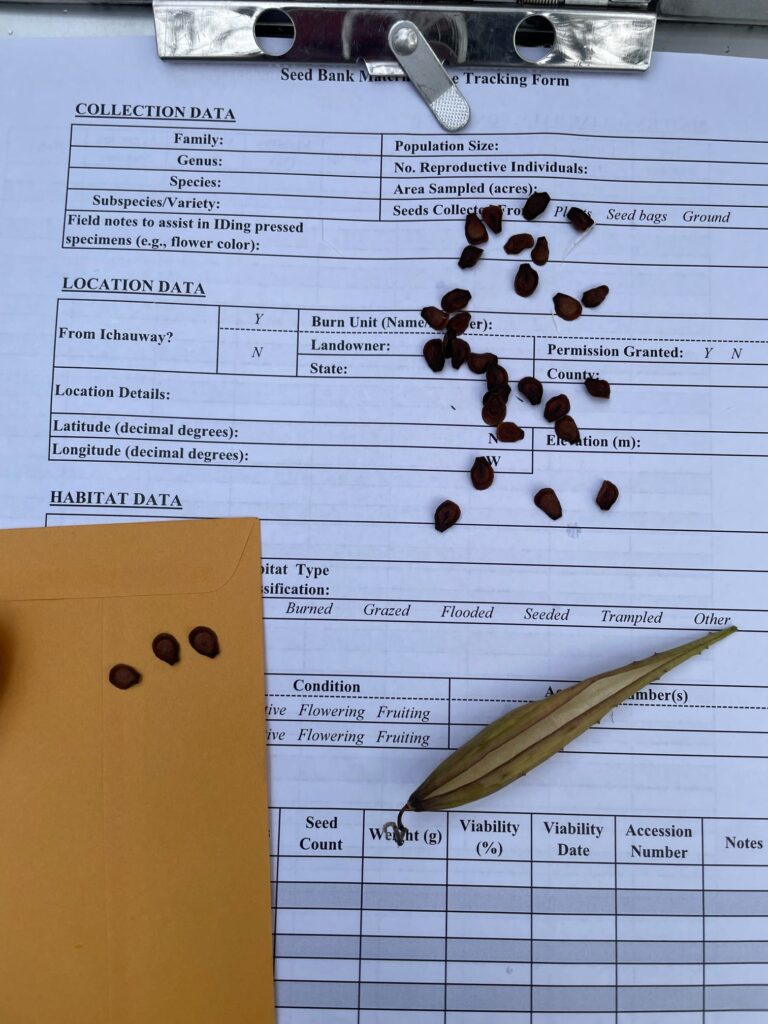
Seed collection efforts expand
The Jones Center became an Institutional Partner of the Center for Plant Conservation (CPC) in 2024 and collaborated with CPC and the Florida Natural Areas Inventory to make our first-ever seed collections in Florida as part of the Florida Plant Rescue (FLPR) program. FLPR’s goal is “to secure and safeguard Florida’s rare plant species in conservation collections to prevent their extinction and conserve the state’s botanical diversity” and we are excited to be assisting in those efforts!
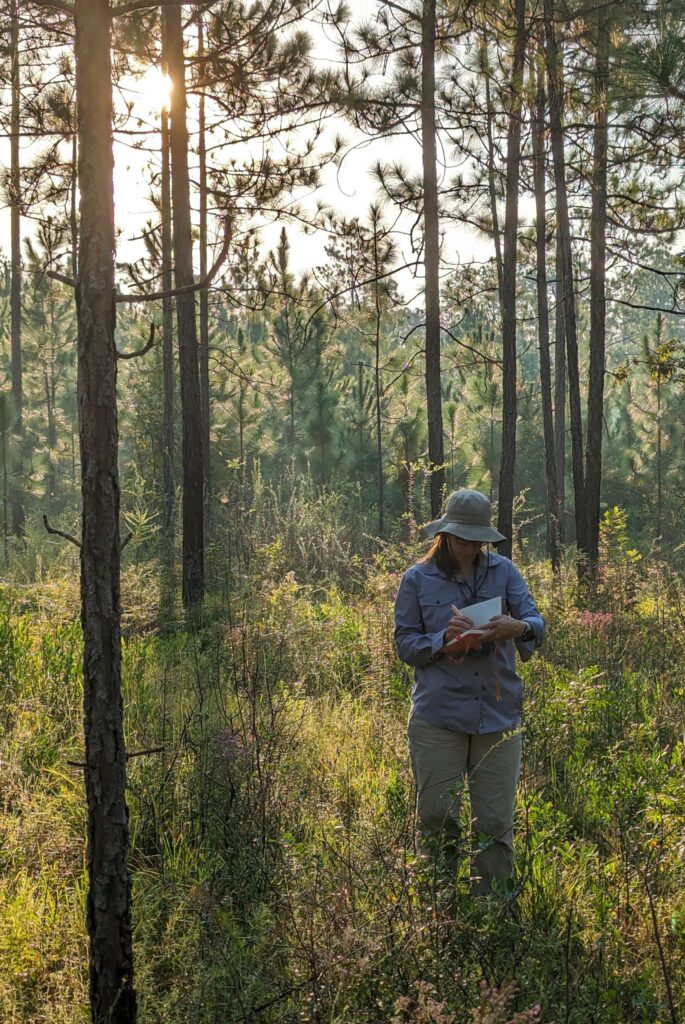
Plant Ecology lab makes Seeds of Success collections
The Plant Ecology lab, through funding from the Southeastern Grasslands Institute, has collected seeds from Conecuh National Forest in southern Alabama and Okefenokee National Wildlife Refuge in southeast Georgia. These collections are part of Seeds of Success, a nationwide native seed collection program. The long-term goal of the Seeds of Success program is to support native plant materials development programs and increase the quantity of native seed available for restoration. Two more seeds collections are planned for 2023.
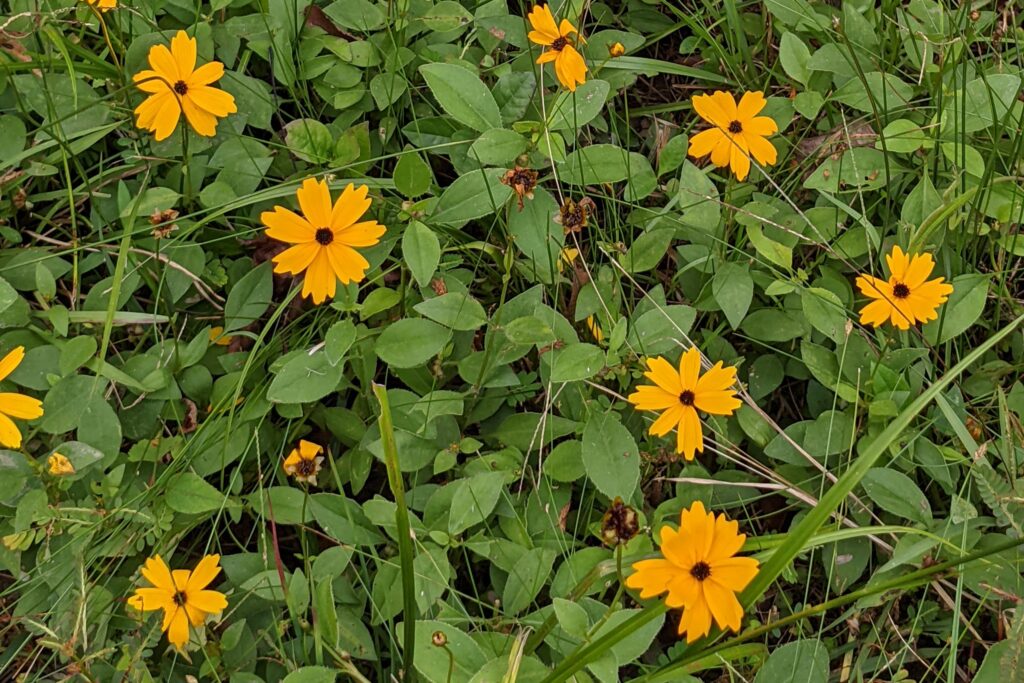
Jones Center hosts rare plant workshop
The Jones Center recently hosted a workshop that brought together botanists from Georgia, Florida, and South Carolina. The goal of the workshop was to develop a framework for an upcoming Species Status Assessment for ciliate-leaf tickseed. The species is globally rare and is being considered for listing under the Endangered Species Act. The status assessment will provide information that will become the basis for a listing decision.
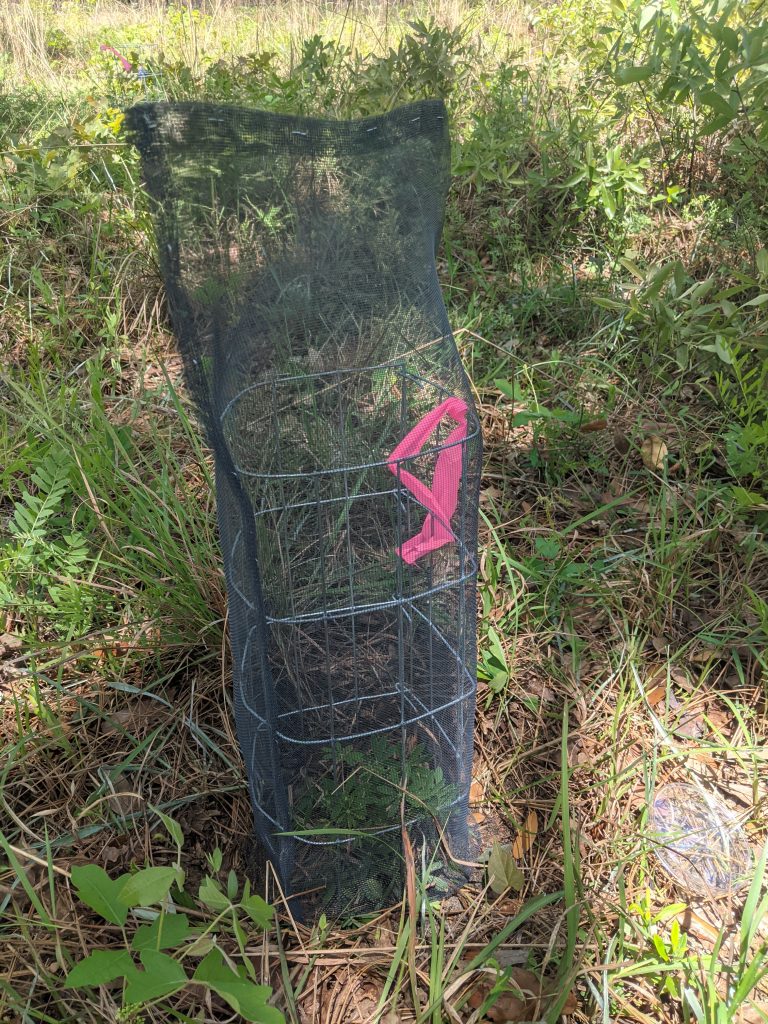
Plant Ecology Lab participates in frosted elfin translocation
Frosted elfin butterflies are thought to be extirpated in Georgia. The Jones Center and Tall Timbers are working together to establish a sustainable population of this species at Ichauway. We moved 30 caterpillars from the Apalachicola National Forest near Tallahassee, FL to Ichauway in April 2022. We also plan to release 30 adult butterflies in early 2023.
